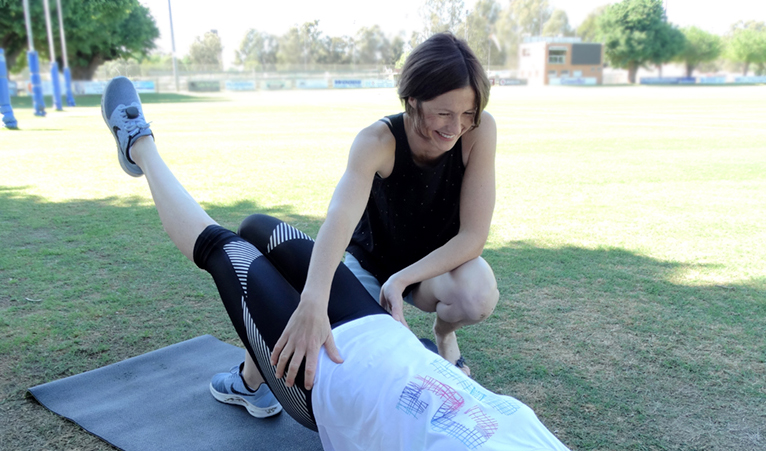
Physiotherapy for your pelvic floor
Did you know that one in three women who have had a baby experience urinary incontinence during their life time? And 75% of women will develop at least some degree of Pelvic Organ Prolapse in their lifetime! A lot of women when questioned are not quite sure where their pelvic floor is or how to actually activate it correctly.
The pelvic floor is important for bladder and bowel control and sexual function. Conditions such as pregnancy, chronic cough, heavy lifting, constipation and abdominal surgeries can lead to pelvic floor dysfunction.
Many women believe that bladder and pelvic floor problems are part of being a woman. No matter how long you have had symptoms it’s not too late to seek help. I am very passionate about empowering women of all ages to be aware of their own body and pelvic floor muscles and structures and to know what is happening within. This changes significantly throughout our lifetimes and thus what is best for our body may change dependent on what stage we are at. Knowing and understanding this can give direction in how to move and exercise in a way that is appropriate for your own body.
If you experience any of the symptoms below, please contact Anna for a thorough assessment and treatment plan today.
• Urine leakage when you exercise, laugh, cough, sneeze, lift or get out of a chair or bed • Frequently needing to go to the toilet
• Trouble reaching the toilet in time
• Difficulty emptying your bladder or bowel
• Sensation of heaviness, bulging or discomfort in the pelvic area
• Difficulty controlling wind
• Difficulty controlling your bowel
• Prolapse
• Sexual problems of pain or sensation changes
• Pre-operative and Post-operative management following gynaecological surgery such as hysterectomy
Physiotherapy for women’s health
Pregnancy can have a profound and lasting effect on your body. Many women experience physical discomforts at differing stages of their pregnancy and postnatally - particularly during the long periods of nursing, sleep deprivation and chasing toddlers around. It brings me a lot of joy to be able to help women minimise the various musculoskeletal aches, pains and niggles so that you can so you can enjoy your time with your special ones as much as possible.
For women long past their child rearing age, physiotherapy can also offer assistance with conditions that may be relative to you, such as if you have developed osteopenia and osteoporosis and you don’t know where to start with a safe exercise program.
Physiotherapy will involve a thorough assessment of your complaint and treatment for it that may include hands on manual therapy, education and advice and exercise therapy that may include Clinical Pilates or yoga as well as the use of supports (taping/ brace) where indicated.
I can help you with:
• Ante natal & Post-natal care, advice and education for new or experienced mothers (including vaginal, caesarean or difficult births)
• Lower back, pelvic girdle, sciatic, postural, neck and shoulder pain
• Breast feeding / postural issues
• Abdominal muscle separation (DRAM)
• Carpel Tunnel Syndrome (pain, numbness or weakness in forearms/wrists)
• Incontinence & Pelvic Floor issues
• ‘Core’ muscle retraining
• Pelvic Girdle Pain (PGP)
• Symphysis Pubis Diastasis (SPD)
• Progression advice & return to safe exercise including a pelvic floor check
• Post mastectomy
• Post abdominal surgery (eg. Hysterectomy or Caesarean Section)
• Pelvic Organ Prolapse (POP)
• Osteoporosis/ osteopenia
• Pelvic Floor strength and coordination (in some cases learn to relax the pelvic floor)
A note for new or recent mums: I recommend all new mums who had a relatively normal delivery to come for a check-up of their pelvic floor and abdomen approximately 6 weeks after the birth of their bub. However, if you had a difficult delivery or any complications such as tearing, it may be indicated to come for a check-up sooner. It is likely an assessment will be able to give you a good indication as to when it is safe to exercise.
If you are experiencing any of these conditions or anything else that is affecting your quality of life, please do not hesitate to contact me for an appointment.
Physiotherapy for musculoskeletal conditions
My goal is to provide you with the highest possible standard of care in a friendly and relaxed environment. I integrate evidence-based musculoskeletal physiotherapy with the principles and exercises of ‘Clinical Pilates’ and yoga to treat a wide range of conditions. These may include the dysfunctions or pain in the spine or neck, any joint, muscles, ligaments, tendons, nerves and fascia and joints. Acute, sub-acute or chronic injuries or conditions, sporting injuries, couch potato injuries, headaches…the list goes on. Expect a comprehensive assessment to nut out the underlying problem and an individualised treatment session.
I really enjoy the hands on component of physiotherapy, like to treat quite holistically and pride myself in looking not only at but also beyond the specific area that you may present with in order to address all components of the body that may be involved. I use a wide range of techniques including:
• Massage
• Mobilisation
• Muscle Energy Techniques (METs)
• Dry Needling
• Stretches and Neural Mobilisations
• Exercise for activating, stabilising, strengthening and lengthening the body
• Education & ‘Explain Pain’ training - Graded Motor Imagery
I have advanced skills in pain management, diagnosis and clinical reasoning. I involve you, the client in establishing the goals of so that we can work together to ensure you get back to what you love most as soon as possible. I promote active rehabilitation and ultimately self-management. And importantly I like to have a laugh and try to make each session as fun as possible.
